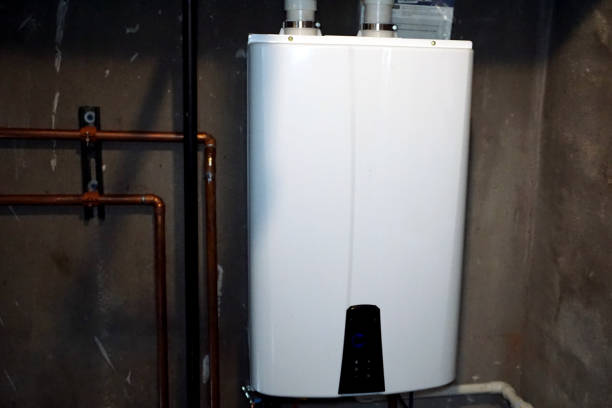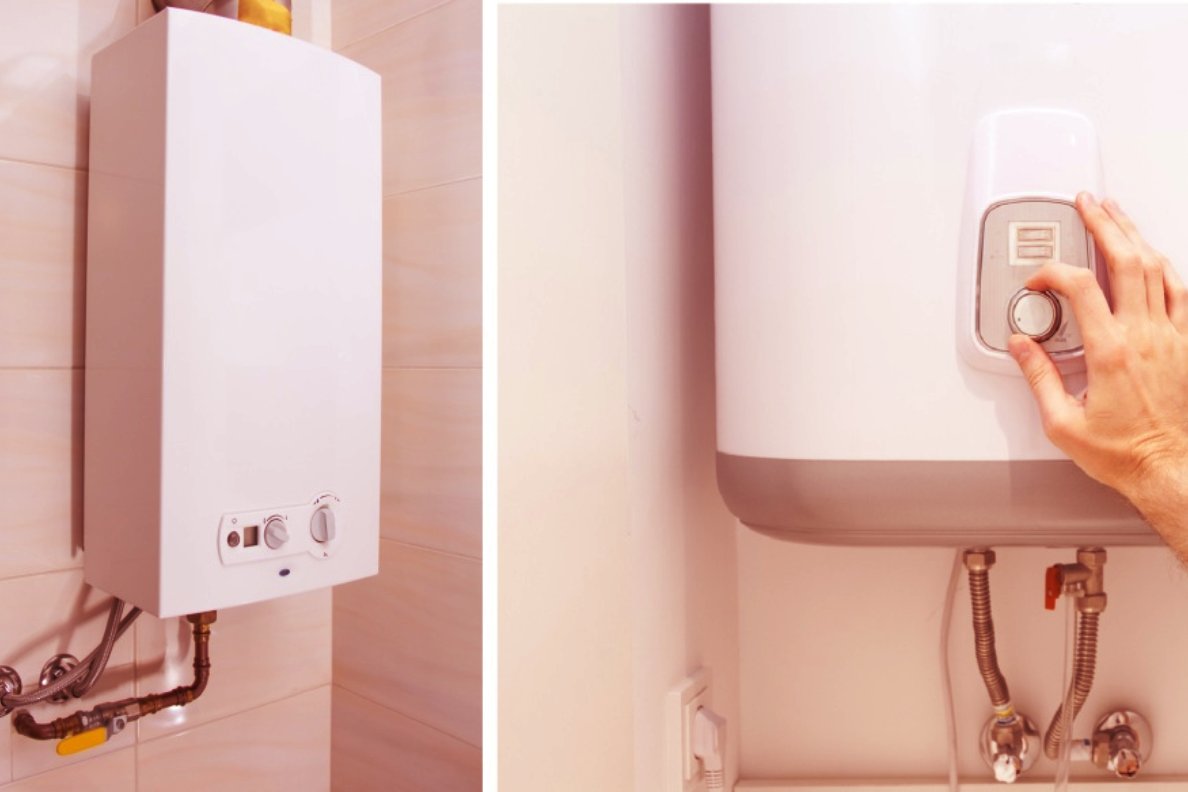Showcasing The Advantages Of Instant Water Heaters
Showcasing The Advantages Of Instant Water Heaters
Blog Article
They are making several great points related to Pros and Cons of Tankless Water Heater as a whole in the article beneath.

In a world where comfort and performance preponderate, it's not a surprise that home owners are regularly looking for smarter means to handle their home's energy usage and convenience. One innovation that has actually steadily gained appeal is the tankless hot water heater. Yet what exactly makes these systems attract attention from the conventional tank-based models the majority of us matured with? Let's dive in and explore the benefits of tankless water heaters, assisting you make a decision if it's time to make the button in your house.
Intro
Picture this: you step into the shower after a long day, expecting a relaxing waterfall of warm water, just to be welcomed by icy droplets since the last person used it all up. Sound acquainted? Conventional water heaters keep a fixed quantity of warm water, indicating you go to the mercy of that storage tank's supply. Tankless systems, on the other hand, warm water as needed. No more going out mid-shower, no more wrestling with timetables just to guarantee hot water is offered.
Understanding Tankless Water Heaters
What Are Tankless Water Heaters?
Tankless hot water heater, often known as on-demand or instant hot water heater, supply hot water just as it's needed. As opposed to storing gallons of pre-heated water, these units kick into activity the moment you switch on the tap. Water passes through a warmth exchanger, warming up in real-time, indicating you get an uninterrupted circulation of hot water without the demand for a huge container resting idly by.
How Do They Vary from Conventional Solutions?
Traditional heaters hold a storage tank of hot water, using energy to keep that storage tank at a regular temperature level. Tankless devices remove the standing supply, minimizing thrown away power and the large impact of a big cylinder. Basically, you're updating from a "stockpile" way of thinking to a "made-to-order" strategy.
Typical Kinds Of Tankless Units
Tankless water heaters normally are available in 2 ranges: gas and electric. Gas designs have a tendency to provide higher flow prices, perfect for larger houses, while electric models often serve smaller sized homes and are generally much easier to install. In addition, some systems are developed for point-of-use (offering one fixture) while others can manage the entire home's hot water demands.
Key Benefits of Tankless Water Heaters
1. Countless Hot Water Supply
Ever needed to schedule showers so everyone obtains their fair share of hot water? With tankless, that ends up being a distant memory. As long as the heater's flow ability isn't exceeded, you can take back-to-back showers without becoming a popsicle.
2. Energy Effectiveness and Expense Financial Savings
No more heating a giant tank's worth of water and keeping it cozy throughout the day. Tankless heating systems decrease standby power losses, which can decrease energy bills. While the initial price might be higher, the long-term savings commonly warrant the investment.
3. Space-Saving Style
If your home is short on storage space, removing the large storage tank liberates beneficial room. Tankless devices are portable and can commonly be mounted on walls, concealed in corners, or mounted in limited energy storage rooms without having all to oneself the entire space.
4. Longer Lifespan
A properly maintained tankless water heater can outlive its tank-based cousin. Standard tanks may last 10-15 years, while tankless versions can keep chugging along for 20 years or even more, making them a solid financial investment over time.
5. Improved Water Quality
Keeping water in a storage tank can often result in sediment buildup or a slightly "off" preference. With tankless systems, fresh water is warmed on the spot, lowering the opportunities of debris build-up and possibly using cleaner-tasting water.
Considerations Before Changing
Though the benefits are compelling, it's a good idea to consider a couple of factors before totally dedicating.
First Investment Prices
Tankless heaters generally come with a greater ahead of time cost. Between the unit itself and potential installment alterations, the preliminary cost could provide you sticker shock. But bear in mind to see it as a long-term financial investment.
Installment Demands
Depending upon your home's framework, you could need additional electrical capacity or gas line upgrades. Guarantee you understand the installation needs and consult with a professional to avoid shocks.
Reviewing Your Home's Water Use Patterns
If your household concurrently utilizes numerous components with high warm water need, make certain the system's circulation rate meets your needs. Knowing your usage patterns aids you select the ideal size and type of tankless heater.
Maintenance and Treatment Tips
Tankless systems are reasonably low upkeep, however they aren't set-it-and-forget-it home appliances.
Routine Cleaning and Descaling
Difficult water minerals can build up in the heat exchanger, impacting performance. Normal descaling (frequently suggested yearly) keeps the device going for peak performance.
Yearly Expert Evaluations
A yearly checkup from a professional makes certain small problems are captured early. They'll assess the device's efficiency, search for leakages, and assist keep optimum efficiency.
Making Sure Proper Air Flow
For gas models, appropriate ventilation is essential to safely remove exhaust gases. Make certain airing vent systems are tidy and properly installed to prevent any prospective security risks.
Comparing Different Brands and Designs
Not all tankless water heaters are created equal.
Looking Into Reliable Suppliers
Look for trusted brands with a background of producing high quality systems. A trustworthy maker frequently provides better client support and longer warranties.
Checking Out Reviews and User Feedback
User reviews and comments from neighbors or good friends that have gone tankless can offer valuable understandings. In some cases, real-life experiences can be much more telling than advertising and marketing pamphlets.
Installation: Do It Yourself or Expert?
While some house owners enjoy tackling jobs themselves, tankless installation could not be the very best time to burst out the tool kit.
Advantages and disadvantages of Do It Yourself Setup
A do it yourself install can save cash, but it includes threats. Inaccurate installment can lead to ineffectiveness or security problems. If you're handy and have experience, it may be practical-- yet proceed with care.
When to Call a Professional Plumbing Technician
For the majority of, calling a professional makes certain whatever's done appropriately. A specialist plumbing technician comprehends neighborhood codes, sizing needs, and venting parameters, minimizing the risk of incidents.
Maximizing Effectiveness
You have actually invested in a tankless unit-- currently maximize its efficiency.
Optimal Temperature Level Setups
Many people establish their devices between 120-140 F. Changing the temperature can enhance convenience and savings. Experiment to discover a wonderful area that doesn't lose power.
Coupling With Low-Flow Fixtures
Intend to extend your device's abilities? Take into consideration mounting low-flow showerheads and faucets. They reduce water usage, permitting your tankless system to supply a stable stream of warm water without stressing.
Environmental Influence
Tankless hot water heater align with greener living objectives.
Decreased Carbon Impact
By using less power and just heating water as required, tankless systems can decrease your home's carbon impact, decreasing your ecological influence.
Saving Natural Resources
Less energy intake and much less wasted hot water equate right into less natural deposits being made use of, an ecological win-win.
That Profits The Majority Of from Tankless Heating systems?
The elegance of tankless heating systems is that they can match a variety of houses.
Big Households vs. Single Passengers
Huge households could like the endless hot water supply, while single owners value the power cost savings from not heating up an entire container for just a single person's morning shower.
House Owners with Limited Area
If your home is short on square video, shedding the large container liberates room for various other basics-- or maybe just extra breathing space.
Eco-Conscious Customers
Going tankless aligns with eco-friendly values, ensuring you're not squandering power or sources.
Future Patterns in Tankless Hot Water Heater
The globe of home devices is ever-evolving, and tankless water heaters are no exception.
Smart Home Combination
Think of changing your hot water heater's temperature level using an application or getting maintenance alerts on your phone. As clever home tech advances, we'll see even more connectivity and ease.
Developments in Modern technology
R&D is regularly improving warm exchangers, making systems much more reliable and sturdy. Future versions may be even quieter, a lot more portable, and far better fit for differing climates.
Conclusion
Choosing a tankless water heater is more than simply upgrading your home's warm water system; it's purchasing lasting comfort, power performance, and a greener lifestyle. By considering your family's water use, bearing in mind installment demands, and devoting to regular maintenance, you can delight in a constant stream of hot water without the baggage of a large container. As technology develops, you can expect also smarter, more effective tankless options that not only make your life less complicated however likewise profit the world.
Pros and Cons of Tankless Water Heaters
Tankless Water Heater Pros
Saves Energy: Simply put, you re spending less energy to create hot water, so your total carbon footprint goes down, not to mention your bills. Lasts Longer Than Storage Tanks: Storage tank units need to be replaced every 15 years or so. But tankless units? They can last for 30 years before they give out on you. Constant Hot Water: Need to take a shower and don t want the water running cold? Awesome it won t. The water will stay hot the entire time because it creates hot water on demand. Saves You Money: Less water usage equals less money. Beyond that, you re not paying to keep water hot 24/7. Those savings add up quickly. Better for the Environment: Less water waste is better for everyone. It saves you money, but it s also environmentally conscious at the same time. Tankless Water Heater Cons
It Can Take a Minute: Depending on your specific unit and its placement, it can take anywhere from 10 seconds to 2 minutes to fully heat up. Because there s no storage tank, it heats water as you need it. Upfront Purchase Price: While we talked about their longevity, there s sticker shock when you look at brand-new tankless units to install. It pays for itself, but it s still a big chunk of change at first. Has its Limits: If you run multiple appliances at once, such as the dishwasher, washing machine, and maybe you take a shower at the same time, there might not be enough hot water. https://www.airsouthnow.com/blog/water-heater-service/pros-and-cons-of-tankless-water-heaters/

Do you appreciate more info about Pros and Cons of Tankless Water Heater? Make a review directly below. We'd be glad to see your responses about this blog. We are looking forward that you visit us again in the future. Appreciated our article? Please share it. Help other people check it out. Thank you for taking the time to read it.
Rates Report this page